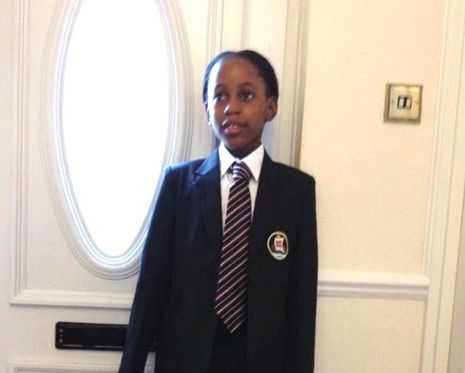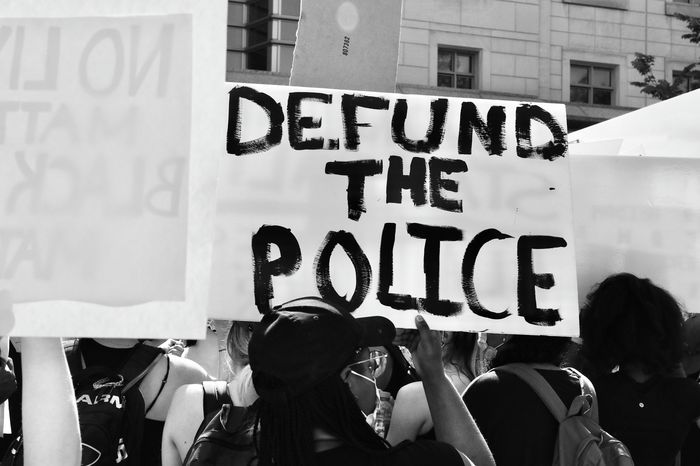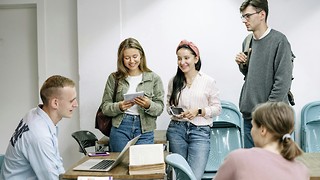Race in Education
In the wake of Black History Month, Theola Ojo recollects incidents of racism in her predominantly white Essex school.

I still remember telling my Oxbridge coordinator that I was applying to Cambridge. He looked at me in disbelief, checking my grade average. Then he said, “You don’t seem like… you know”, gesturing to me as if my appearance somehow seemed to indicate I was not capable. Later, I found out how an ex-student was prevented from applying because he didn’t “look” like an Oxford student. This one racist teacher blocked so many Black Oxbridge applicants whilst helping dozens of privileged white ones.
Racism in my old school, from casual to systemic, was perpetuated by the school itself. For wearing durags – but not MAGA hats – students were sent home. Black students were reprimanded for hanging out in large groups because they seemed like gangs. It often felt that our uniform, behaviour and even hair were punished more than white students were punished for being racist. It was so normalised that, when students going on an aid trip to my Mum’s home country, Zambia, made cruel “jokes” about malaria on the anniversary of my Aunt’s death (from malaria), I didn’t think once about reporting it. I groaned to my friends and moved on. This trip was a unique combination of white saviorism and racism; even a teacher joined in, labelling Zambia’s rich cultural traditions as “primitive dances”. That garnered more controversy from us Black students but no reprimand. Meanwhile, our white peers stayed silent.
“I formed a love of my history and thus learned to love myself despite the racist education system”
It was in Year 13, during my Cambridge application, when I was most conscious of teacher racism and the Eurocentric curriculum. The Oxbridge coordinator at my school, who had a history of racist, sexist, and politically incorrect remarks, had handpicked a number of white students for the Gifted and Talented group years ago. Thus, BAME students in the top set (including me) were never chosen, and I internalised this to the point that I never aligned myself with Oxbridge. It was only when I saw Youtubers Courtney Daniella and Ibz Mo, and attended an ACS conference in summer 2019, that I really believed I could apply.
My Cambridge application also marked the beginning of my journey to decolonise my curriculum. I pushed for a Nigerian author in coursework, chose postcolonial Nigeria for my EPQ and studied Du Bois, because race is criminally marginalised in the A-Level Sociology curriculum. White teachers could give me no advice or book recommendations. I feel heartbroken for younger Black students who may not have the option to decolonise their curriculum through optional coursework or extended projects, hence the need for radical change in the UK’s education policy. Why should my younger brother know the causes of World War 2 but not the decolonisation that came after, something that directly impacted my grandparents? Or know of the Holocaust but not of Belgium’s genocide in Congo?
When I made the move to Cambridge, I transitioned from a predominantly white school in Essex, to a university with a Black population of just 3.4 per cent. I’d been told by so many people that university would be a radical shift from what I’d known, but in regard to being surrounded by whiteness, little has changed. This has prompted me to rethink my own encounters with racism in education; my friends and I never realised the sheer extent of psychological and cultural violence that we faced as we grew up. Black students are socialised into a culture of casual racism, disproportionate punishment, and underestimation. You need only to briefly browse the Twitter page ‘Racism in UK schools’ to see that there is no recourse in education for us. It was only during this summer that uproar over the tweets on this page concerning my school finally led to issues being addressed.
“Racism in my old school, from casual to systemic, was perpetuated by the school itself.”
George Floyd’s murder and the wave of protests that followed sparked new solidarity and online activism; it felt like the racism we faced growing up and the silencing of our history would no longer be ignored. We wrote emails to our MPs demanding justice for Belly Mujinga, spread awareness of Black history online and attended protests. I personally wrote an email to my school and participated in a Zoom meeting addressing blatant racism with other Black peers. This was the first moment when I articulated feelings of exclusion and oppression, feelings that stemmed from the influence of race and gender on my education. Coming here and reading the book ‘Taking Up Space: The Black Girl’s Manifesto for Change’, written by Cambridge graduates, made me consider what I would face as a Black person in a mostly white academic space again: the “dead white male” authors who make up my POL1 reading list, the awkwardness of being the only Black girl in racism talks, and the absence of Black lecturers even when topics concern race.
When thinking about race in education, I don’t want any Black students to experience racism or the erasure of our history. In a sense, it was traumatic; one ex-student described how my old secondary school “made us suffer in silence”. However, I know that this is was what made me so passionate about pursuing access and advocating for postcolonial and Black feminist theories. I formed a love of my history and thus learned to love myself despite the racist education system. Furthermore, this summer saw huge civil rights protests which triggered demands for a change in education, even at the local level of my old school in Essex. Grassroots projects like ‘The Black Curriculum’ are trying to ensure that Black History Month is not just a month but taught all year round. Each day I am filled with joy because I see more Black voices on my Instagram feed; I hope that our advocacy will manifest in meaningful change.
 News / Cambridge academics sign open letter criticising research funding changes22 February 2026
News / Cambridge academics sign open letter criticising research funding changes22 February 2026 News / Student and union protesters hold ‘Trans Liberation Solidarity Rally’ 24 February 2026
News / Student and union protesters hold ‘Trans Liberation Solidarity Rally’ 24 February 2026 News / Union speakers condemn ‘hateful’ Katie Hopkins speech14 February 2026
News / Union speakers condemn ‘hateful’ Katie Hopkins speech14 February 2026 Features / Beyond the porters’ lodge: is life better outside college?24 February 2026
Features / Beyond the porters’ lodge: is life better outside college?24 February 2026 Theatre / Footlights Spring Revue? Don’t Mind if I Do!25 February 2026
Theatre / Footlights Spring Revue? Don’t Mind if I Do!25 February 2026









